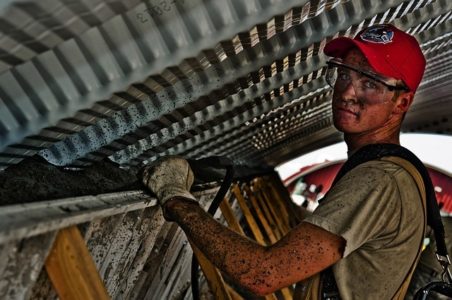
The Eleventh Circuit Court of Appeals issued an entertaining opinion reinforcing its presumption that courts should not overturn arbitration decisions in labor disputes. Wiregrass Metal Trade Council AFL-CIO v. Shaw Environmental & Infrastructure, Inc., No. 15-11662, 2016 WL 4702017 (11th Cir. Sept. 8, 2016). In Wiregrass, an arbitrator ordered reinstatement of an employee who was terminated from employment, but a federal district court reversed that decision. Chief Judge Ed Carnes provided this introduction to the case:
A dispute involving the interpretation of a collective bargaining agreement was submitted to an arbitrator, as both parties had agreed their disputes would be. As usually happens, the losing party was not happy with the loss. See Saturn Telecommunications Servs., Inc. v. Covad Communications Co., 560 F.Supp.2d 1278, 1279 (S.D. Fla. 2008) (Jordan, J.) (“Everyone supposedly loves arbitration. At least until arbitration goes badly.”). As too often happens, instead of accepting it and moving on, the loser moved the district court to set aside the arbitration award, which it did. Then the former winner, who had become a loser, appealed that decision to this Court. We reverse the district court’s decision and restore the polarity of the parties to the status they were in when they left arbitration. We do so because of the law’s insistence that arbitration losers who resort to the courts continue to lose in all but the most unusual circumstances, of which this is not one.
Wiregrass, 2016 WL 4702017 at *1.
The employee in Wiregrass was a government contractor at a federal facility, and he was terminated for possessing government property without authorization. The arbitrator ordered him reinstated to employment, because he did not know that the property in question was government-owned. The federal district court reversed the arbitrator, because the arbitration agreement did not contain language requiring knowledge that the property was government-owned.
As a result, the appeal focused primarily upon whether the arbitrator interpreted the arbitration agreeement to include a knowledge requirement, or if she modified the agreement to impose a knowledge requirement when none was intended. Interpretations by arbitrators are permissible, but modifications of the agreement are not. Judge Carnes recognized that the arbitrator’s decision could be plausibly viewed as either a modification or an interpretation:
Given what we have and what we don’t have from the arbitrator, one could fairly characterize her decision as an interpretation of the agreement or as a modification of it. One characterization is as fair as the other. So we are, like Buridan’s ass, stuck between two equally plausible choices. Did the arbitrator interpret the possession policy and discover an implied knowledge requirement, or did she impermissibly modify the policy by simply adding that requirement?
Wiregrass, 2016 WL 4702017 at * 6. Despite that dilemma, Judge Carnes found guidance in the Supreme Court’s decision in United Steelworkers of Am. v. Enterprise Wheel & Car Corp., 363 U.S. 593 (1960).
The rule of Enterprise Wheel is that, when it is “not apparent” from the arbitrator’s stated reasoning (or lack thereof) whether she permissibly interpreted a collective bargaining agreement or impermissibly modified it, and one can plausibly read the award either way, the court must resolve the ambiguity by finding that the award is an interpretation of the contract and enforcing it. The rule reflects a strong, albeit not irrebuttable, presumption that the arbitrator has interpreted the agreement instead of modifying it.
Wiregrass, 2016 WL 4702017 at *6. Judge Carnes concluded by reinforcing the presumption that arbitration awards should be upheld:
The Enterprise Wheel presumption, which we apply today, helps keep the promise of arbitration. By presuming, in the absence of evidence to the contrary, that an arbitrator’s award rested on an interpretation and not a modification of an agreement, we discourage parties from trying to snatch court victories from the jaws of arbitration defeats.
Id. at *7.
Wiregrass is an entertaining and informative review of the Eleventh Circuit’s presumption in favor of arbitration decisions. In this case, that presumption favored the employee, because the arbitrator awarded reinstatement. Nevertheless, in future decisions, the presumption could easily work in favor of the employer.